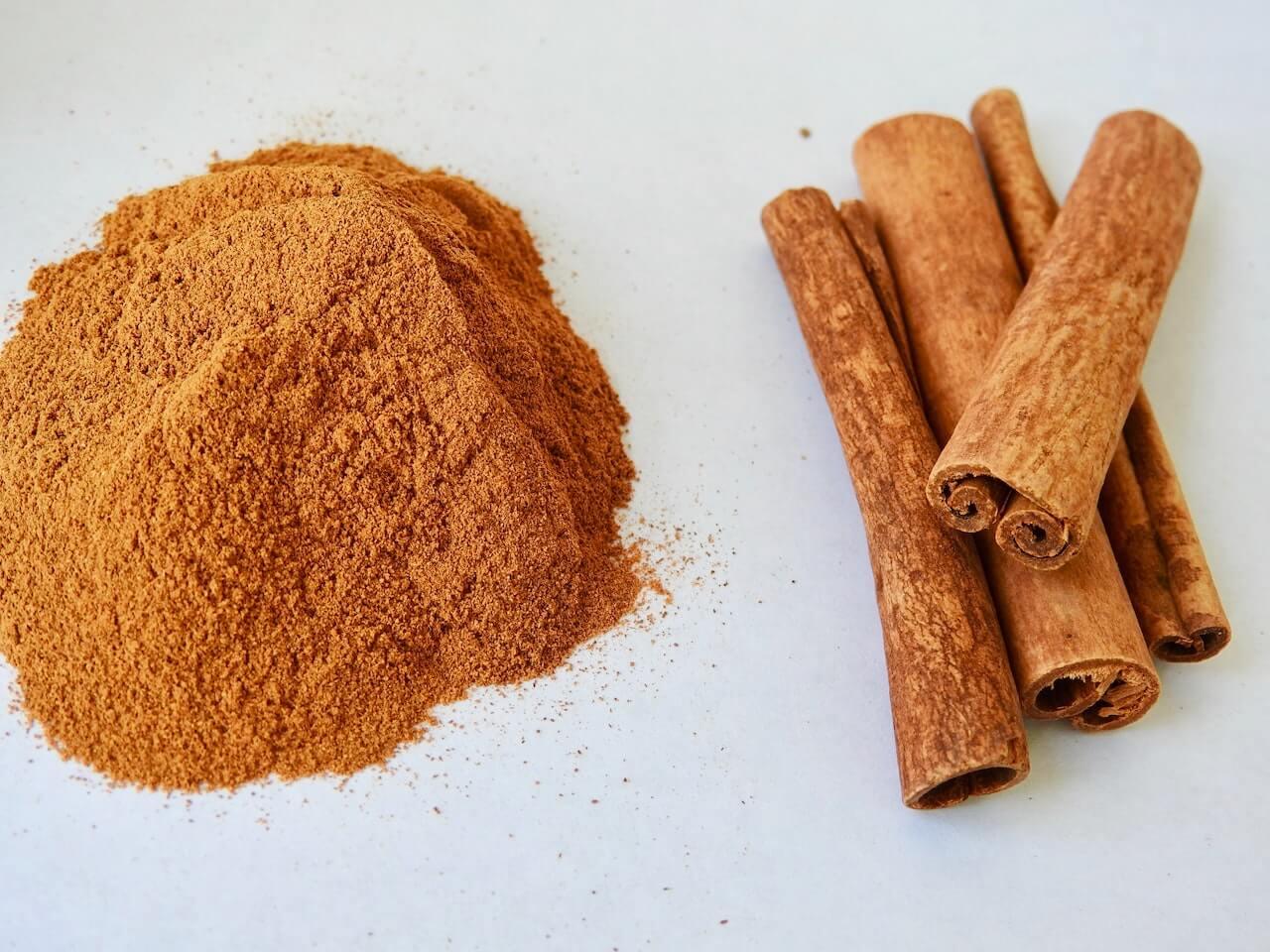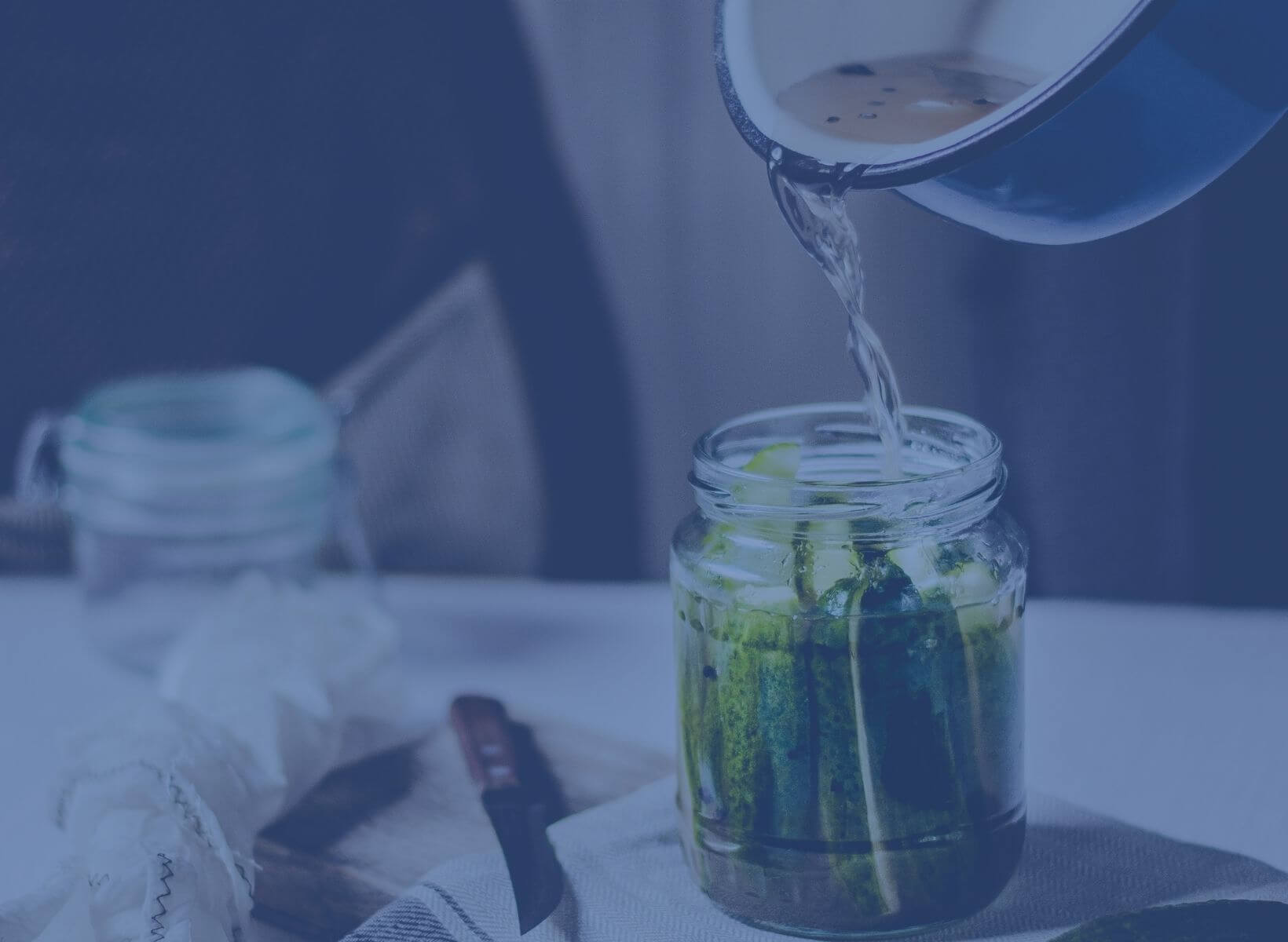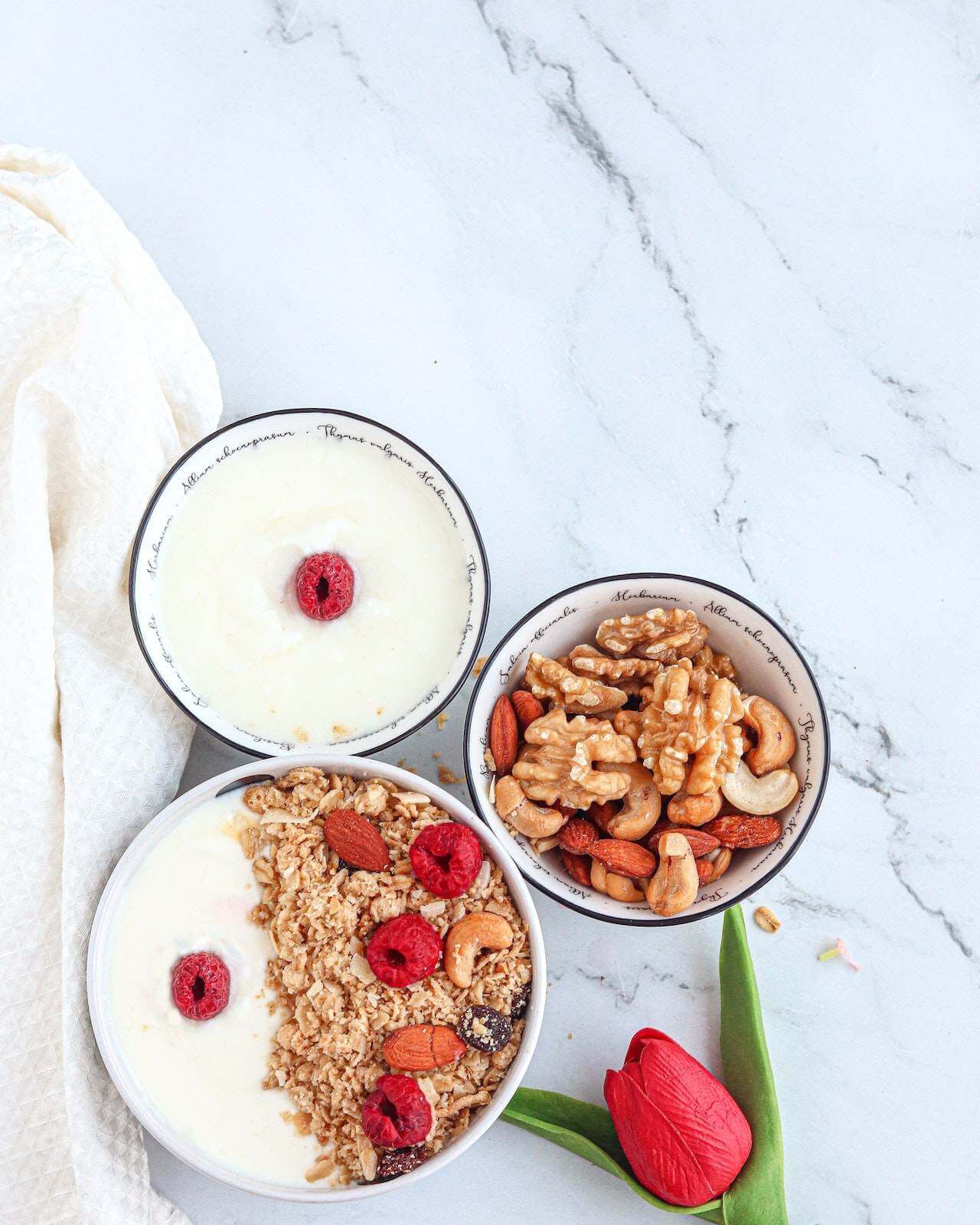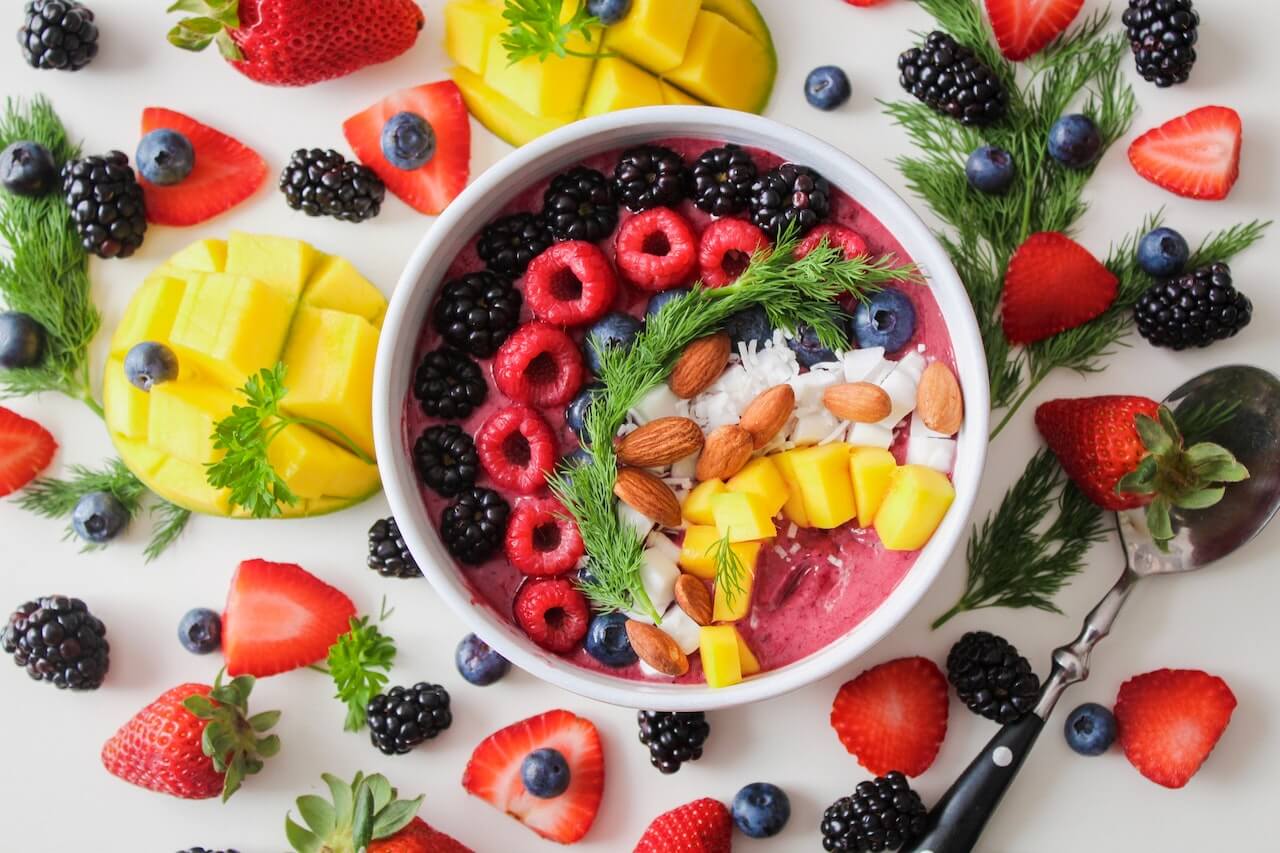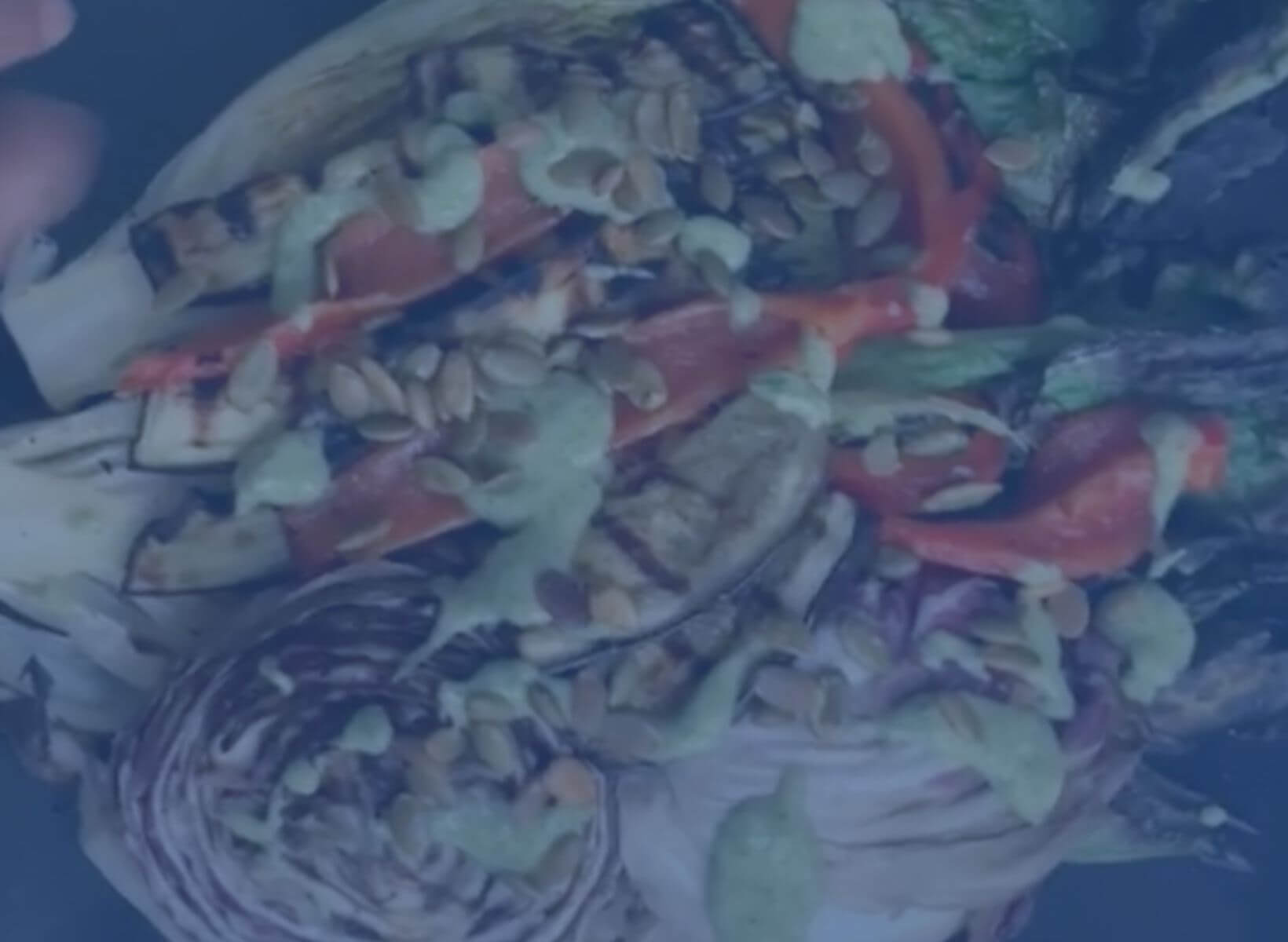Cinnamon is an ancient spice with a unique flavor and offers a range of potential health benefits. One of the most popular ways to harness cinnamon’s health benefits is by brewing cinnamon tea.
Drinking tea is an age-old way to reap the health benefits of various herbs and spices. These beverages offer a concentrated form of plant compounds, providing a convenient way to incorporate their natural properties into your daily routine. Herbs and spices are packed with antioxidants, anti-inflammatory compounds, nutrients, and other bioactive substances that support overall health and well-being.
In this article, you’ll learn the characteristics and types of cinnamon, its health benefits, and potential side effects. We’ll also provide insights on recommended consumption and share a simple recipe for homemade cinnamon tea and suggest alternative uses for cinnamon.
What is Cinnamon?
Cinnamon is a fragrant spice derived from the bark of trees belonging to the Cinnamomum genus. It has a warm, sweet flavor with a hint of spiciness and is widely recognized for its distinct aroma. Cinnamon has a rich history that dates back thousands of years and has been valued for its culinary and medicinal properties across different cultures.
Cinnamon is native to regions in Asia, particularly Sri Lanka (Ceylon cinnamon) and China (Cassia cinnamon). The spice was highly prized in ancient times and considered more valuable than gold. It was used in religious ceremonies, embalming processes, and as a currency in trade.1
Cinnamon is now a household staple because of its versatility in sweet and savory dishes. It adds depth and warmth to various foods, including baked goods like cinnamon rolls, cookies, and pies. Cinnamon is also added to breakfast foods like oatmeal, pancakes, and French toast. It is often added to beverages like coffee, hot chocolate, and, of course, tea.
Cinnamon is sometimes used in spice blends added to savory dishes like curries, stews, and sauces. It goes well with both meat and vegetarian dishes.
Besides its uses in cooking and baking, cinnamon has been traditionally used for its potential health benefits, potentially improving digestion, boosting cognitive function, and supporting blood sugar regulation.
{{mid-cta}}
Is Cinnamon Good for You?
Cinnamon has various health benefits backed by science and is known for having anti-inflammatory, antimicrobial, and antioxidant properties. It is also recognized for its potential anti-cancer properties.
Cinnamon Nutrition Facts
Cinnamon is a spice typically consumed in small amounts, so its nutritional content per teaspoon is relatively low. Here's an overview of the nutrients found in approximately one teaspoon (2.6 grams) of ground cinnamon:2
Calories: 6
Carbohydrates: 2 grams
Fiber: 1 gram
Calcium: 26 milligrams
Iron: 0.4 milligrams
Vitamin K: 0.4 micrograms
Cinnamon is low in calories and carbohydrates, making it a suitable addition to any diet. It contains a small amount of dietary fiber, which can contribute to overall fiber intake.
When it comes to the glycemic index (GI) of cinnamon, it is considered to have a low GI. The GI measures how quickly a food raises blood sugar levels after eating. Cinnamon has been shown to have a minimal impact on blood sugar levels due to its compounds that may enhance insulin sensitivity and delay the breakdown of carbohydrates in the digestive system.3
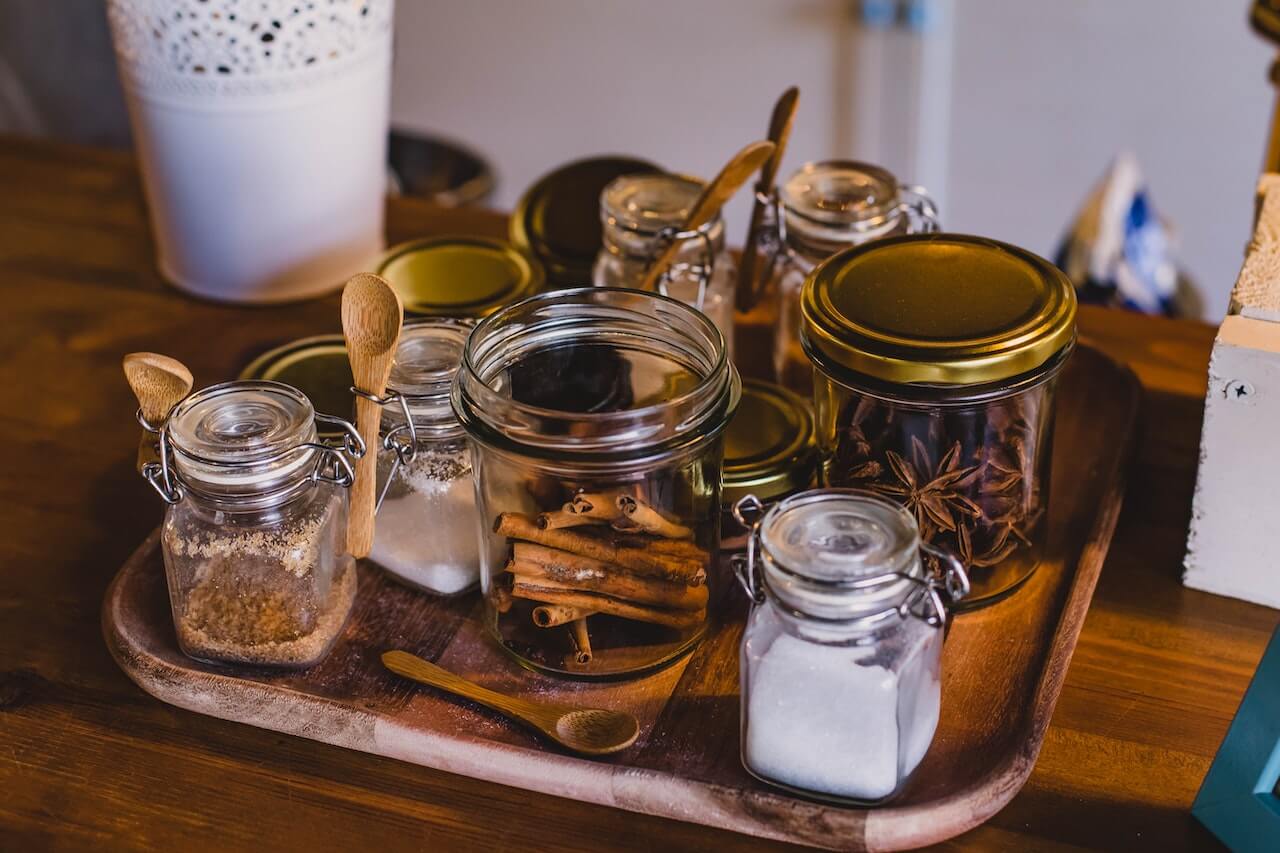
5 Types of Cinnamon You Didn’t Know Exist
Here are the four most common types of cinnamon:
Ceylon cinnamon
Also known as "true cinnamon," this type is grown in Sri Lanka and has a delicate and sweet flavor. It has lower levels of coumarin, a natural compound that can be toxic in large amounts, than other types of cinnamon.
Cassia cinnamon
This is the most common type of cinnamon found in supermarkets. It has a strong and spicy flavor and is often used in baking and cooking. Cassia cinnamon is grown primarily in China and Indonesia.
Saigon cinnamon (Vietnamese cinnamon)
This type of cinnamon is grown in Vietnam and has a sweet and spicy flavor with a reddish-brown color. It is known for its high essential oil content, which gives it a stronger flavor.
Korintje cinnamon (Indonesian cinnamon)
This is another type of cinnamon that is commonly used in baking and cooking. It is grown in Indonesia and has a strong and sweet flavor with a reddish-brown color.
Mexican cinnamon (canela)
Canela is a type of cinnamon less common than the four listed above. It is thinner and lighter in color than Cassia cinnamon and has a sweeter flavor. It is often used in Mexican cuisine and is a popular addition to coffee and hot chocolate.
Cinnamon Tea: Description & Properties
Cinnamon tea is made by infusing cinnamon sticks in hot water. The bark is harvested from the inside of the Cinnamomum tree. This bark curls during the drying process, which creates the cinnamon sticks. To make cinnamon tea, these sticks can be soaked in water, crushed into a powder, or turned into an extract. Cinnamon is also blended into other teas, including chai or ginger tea.
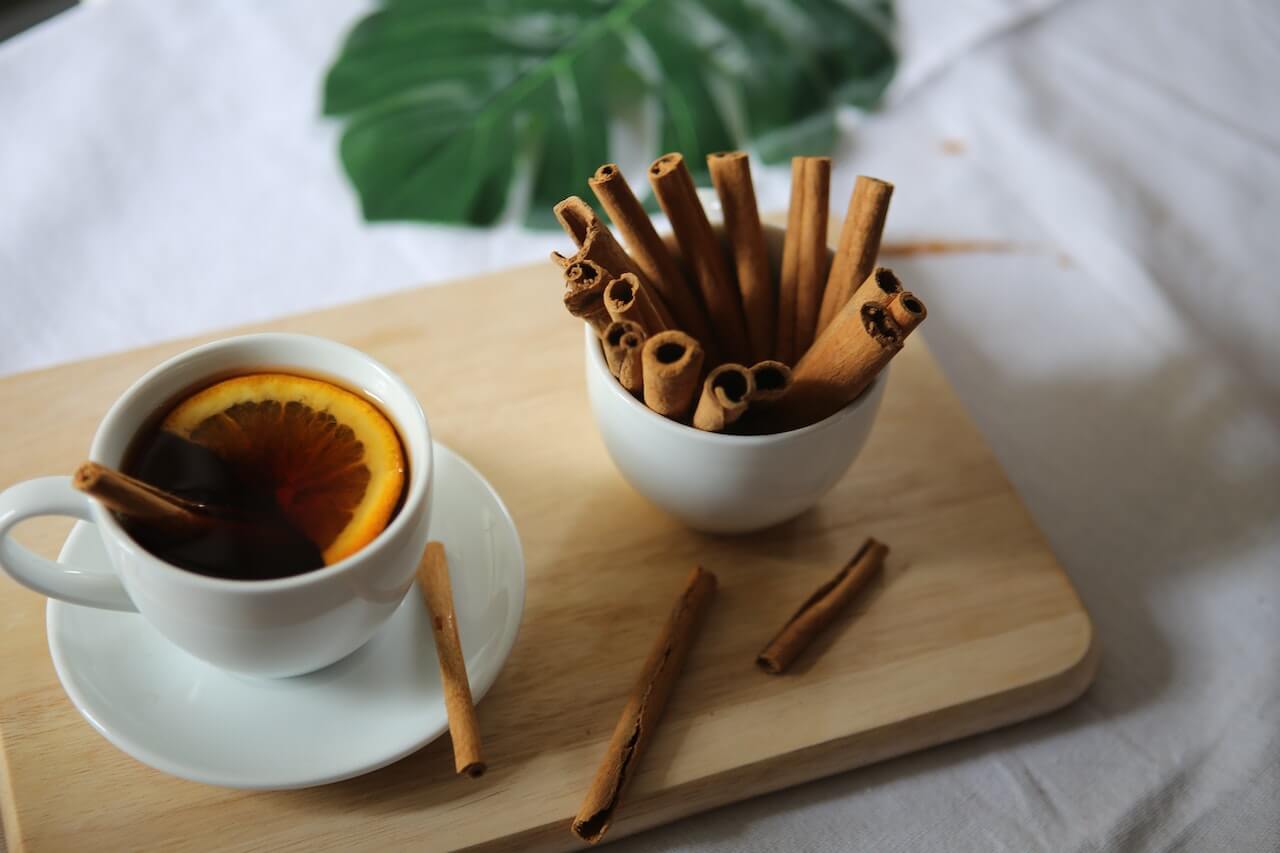
11 Cinnamon Tea Benefits That Can Improve Your Health
In addition to being a good source of antioxidants, cinnamon tea provides small amounts of other nutrients, including calcium, iron, and potassium. Here are 11 benefits you may experience from drinking cinnamon tea:
1. Reduces inflammation
Some studies have shown that cinnamon may lower markers of inflammation. These anti-inflammatory effects can be extremely beneficial to health, as inflammation is believed to be at the root of many chronic diseases.4
2. It’s rich in antioxidants, increasing the body’s ability to fight off free radicals
Cinnamon tea has a ton of antioxidants, which help keep the body healthy by reducing oxidative stress.
Antioxidants neutralize free radicals, molecules that damage your cells and contribute to diseases like diabetes, cancer, and heart disease.
Cinnamon is especially high in polyphenol antioxidants. One study comparing the antioxidant activity of 26 spices showed that cinnamon was in the top three, outranked only by cloves and oregano.5
Evidence also suggests that cinnamon tea can increase total antioxidant capacity (TAC), which is a measure of the number of free radicals your body is able to fight off.6
3. Supports heart health
Cinnamon tea may help prevent heart disease and promote healthy cholesterol levels.
Studies show that consuming cinnamon may lower blood pressure and reduce some people's triglyceride and LDL cholesterol levels.7
Cinnamon might also increase HDL cholesterol levels, which supports heart health by eliminating excess cholesterol from your blood vessels.8
It also has a group of compounds called coumarins that help prevent blood vessel narrowing and protect against blood clots.9
4. May help with weight loss
Cinnamon tea is often proclaimed as a weight loss aid, and several studies have linked cinnamon intake to reduced waist circumference or fat loss.10
Many of these studies did not control caloric intake, and most did not distinguish between fat loss and muscle loss. These limitations make it difficult to conclude that consuming cinnamon results in weight loss.
Additionally, consuming high levels of coumarin could have negative health effects. More research is needed to determine whether lower doses of cinnamon safely provide weight loss benefits.
5. Fights against bacteria and fungi
One of the main active components of cinnamon, cinnamaldehyde, may be useful in fighting against infections.
Some studies show that cinnamon oil could help kill certain fungi that cause respiratory infections.11
Cinnamon may also prevent the growth of deadly bacteria, including listeria and salmonella.
Its antimicrobial effects could also help prevent tooth decay and combat bad breath.12
Most research on the antimicrobial properties of cinnamon is limited to test-tube studies, so more research in humans is needed.
6. May reduce PMS symptoms
Cinnamon tea may help treat painful menstrual cramps and other symptoms of pre-menstrual syndrome. It may also help reduce menstrual bleeding, nausea, and vomiting during menstruation.13
7. May help reduce acne
One test-tube study showed that cinnamon extract might be successful in fighting bacteria that cause acne when used topically. However, there are no studies that suggest drinking cinnamon tea will provide the same benefits.14
8. Boosts hair growth
When applied to the scalp, cinnamon may stimulate circulation and increase blood flow to the area. This could encourage hair growth and reduce hair loss. It also has antifungal properties, which might help treat dandruff caused by Malassezia, a type of fungus.15
9. May alleviate upset stomach
In Eastern medicine, cinnamon has been used for centuries to treat stomach upset, including diarrhea, nausea, and bloating. Some studies, as well as anecdotal evidence, suggest that cinnamon tea may help to treat upset stomach.13,16
10. May lower blood sugar
Cinnamon seems to have effects similar to insulin, a hormone responsible for transporting sugar from your bloodstream and into your tissues.17
Additionally, the chromium and polyphenols found in cinnamon may contribute to lower blood sugar levels by reducing insulin resistance, which makes the body’s insulin more effective.18
Cinnamon may also help slow the breakdown of carbs in your gut, preventing your blood sugar levels from spiking after meals.19
There is some evidence that suggests drinking cinnamon tea may reduce blood sugar, but most studies showed significant benefits when people took concentrated doses ranging from 120 mg to 6 grams of powdered cinnamon.
11. May improve brain function
Recent studies have shown that cinnamon may show promise in preventing and treating Alzheimer’s disease. However, research is limited and has not been performed in humans.20
Potential Risks of Cinnamon Tea
Although there are many potential health benefits, drinking cinnamon tea may come with risks. These risks include:
- Hepatic damage
Cinnamon contains coumarin, a natural compound toxic to the liver when consumed in high doses. Cassia cinnamon, in particular, has higher coumarin levels than Ceylon cinnamon. To reduce this risk, it's generally recommended to limit the cinnamon intake and opt for Ceylon cinnamon, which has lower coumarin levels.
- Oral injuries
Swallowing or biting into the hard cinnamon stick fragments can cause mouth or throat irritation, cuts, or choking. Staining the tea or removing the cinnamon sticks before consumption is essential to avoid any potential oral injuries.
- Hypoglycemia
Consuming too much cinnamon with diabetes medications or insulin can potentially lead to hypoglycemia (low blood sugar). Combining cinnamon with diabetes medications should be done under the guidance of a healthcare professional to ensure appropriate blood sugar management.
- Medication interactions
Cinnamon may interact with certain medications. If you take any medications, you should consult a healthcare professional or pharmacist to assess potential interactions before consuming cinnamon tea or supplements.
The abovementioned risks are typically associated with excessive or prolonged use of cinnamon or its concentrated forms. Moderate consumption of cinnamon tea, prepared from regular cinnamon sticks, is generally considered safe for most people.
How Much Cinnamon Tea is Recommended?
Cassia cinnamon, commonly found in supermarkets, contains coumarin, a compound that can be toxic to the liver in high doses. Therefore, consuming less than 0.1 milligrams per kilogram of body weight daily is recommended. Adults should avoid eating more than one teaspoon of Cassia cinnamon per day. Children may tolerate even less.21
Who Should Avoid Cinnamon Tea?
People who are allergic to cinnamaldehyde or the cinnamon tree should avoid drinking this tea.
Cinnamon tea may interact with certain medications. If you take medications for diabetes, blood sugar problems, or heart disease, check with your doctor before drinking cinnamon tea.
Some species of cinnamon also contain high amounts of coumarin that may cause liver failure. Do not drink cinnamon tea if you have liver or kidney disease.
When and How Often Is It Best to Drink Cinnamon Tea?
Cinnamon tea can be enjoyed anytime throughout the day because it is naturally caffeine-free. However, if you’re specifically interested in its blood-sugar-lowering effects, it may be most effective to consume it with your meals.
How to Make Your Own Cinnamon Tea at Home
Making cinnamon tea at home is relatively simple and requires just a few ingredients. Here's how:
Ingredients
- Cinnamon sticks (2-3 sticks per cup of water)
- Water
- Optional: Sweetener (honey, maple syrup, or stevia) and lemon juice for flavor
Instructions
- Start by gathering your ingredients. You will typically need two to three cinnamon sticks for a single cup of cinnamon tea.
- Break the cinnamon sticks into smaller pieces to allow the flavors to infuse better. You can use a mortar and pestle or simply snap them by hand.
- Add the cinnamon stick pieces to the desired amount of water in a saucepan. Approximately 1 cup (8 ounces) of water is typically used for a single cup of tea.
- Place the saucepan over medium heat and bring the water to a gentle simmer. Avoid boiling the water vigorously, as it can extract bitter flavors from the cinnamon.
- Allow the cinnamon sticks to simmer in the water for about 10-15 minutes to allow the flavors to infuse. Stir occasionally.
- After simmering, remove the saucepan from the heat and let the tea cool for a few minutes.
- If desired, you can sweeten the tea with honey, maple syrup, or stevia to taste. Add a squeeze of lemon juice for additional flavor if desired.
- Strain the tea to remove the cinnamon stick pieces. You can use a fine-mesh strainer or a tea infuser to separate the liquid from the solid particles.
Pour the cinnamon tea into a cup or mug and enjoy it while it's warm. You can adjust the cinnamon stick-to-water ratio based on your preference for flavor strength.
Best Healthy Cinnamon Tea Brands, According to Signos
If you don’t like making cinnamon tea from scratch, you’re still in luck! Here are the three best cinnamon teas you can buy in stores or online:
- TAZO Sweet Cinnamon Spice: Contains non-GMO ingredients that are ethically and sustainably sourced.
- Pukka Herbs Organic Three Cinnamon Tea: Ethically sourced with 100% organically grown ingredients.
- Republic of Tea Cardamom Cinnamon Herbal Full Leaf: Comes in an airtight, light-resistant tin to maintain optimal freshness.
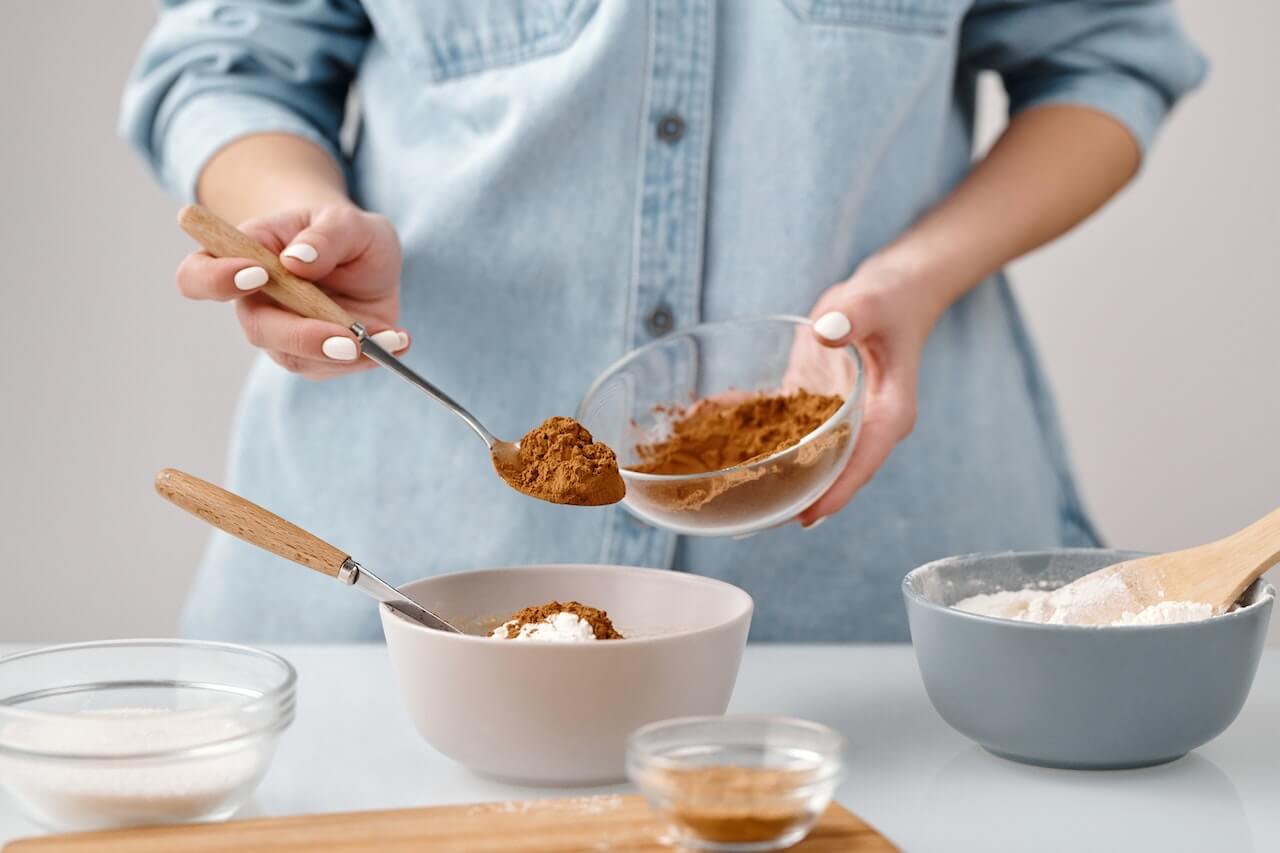
Other Ways To Include Cinnamon in Your Diet
If you’re not big on tea, there are other ways you can add cinnamon to your diet. Here are some ideas to inspire you:
- Garnish your dishes with cinnamon
- Add cinnamon to your smoothies
- Add cinnamon to oatmeal
- Add a pinch of cinnamon to savory dishes
FAQs Around Cinnamon Tea
What is cinnamon tea's caffeine content?
Cinnamon tea is naturally caffeine-free. It is sometimes added to tea blends that include caffeine.
Does cinnamon help burn belly fat?
Cinnamon itself will not help burn belly fat. However, some studies suggest that when taken alongside a calorie-controlled diet and regular exercise, cinnamon may increase metabolism, which might help reduce body fat.
Does cinnamon tea help sexually?
Cinnamon is a source of manganese, a mineral essential to sexual health with documented aphrodisiac effects. Cinnamon also increases blood flow and body temperature, which may improve sexual function.
Is it safe to drink cinnamon tea while pregnant?
Cinnamon tea is safe to drink in moderation during pregnancy.
How can cinnamon tea help me sleep?
Blood sugar spikes and crashes may negatively affect your sleep. Since cinnamon can help regulate blood sugar, this may result in improved sleep.
Learn More About Healthy Nutrition with Signos’ Expert Advice
Signos is a great resource for expert advice on nutrition and healthy eating. Signos has a team of registered dietitians who compile evidence-based nutrition information to help you improve your health and wellness. Check out the resources here.
Signos CGM empowers you to improve your health by keeping track of your diet, exercise, sleep habits, and blood sugar. Knowledge is power, and a CGM can give you specific information about how your habits affect your health.
Find out if Signos is a good fit for you by taking a quick quiz.
Featured snippets:
- The health benefits of cinnamon tea include:
- Reduces inflammation
- High in antioxidants
- Helps control blood sugar
- Promotes heart health by lowering cholesterol
- May support brain health
- Reduces stomach upset
- Helps treat PMS symptoms
- May support weight loss
- Item 1
- Item 2
- item 3
Topics discussed in this article:
References
- Cinnamon | Plant, Spice, History, & Uses | Britannica. (2023, April 29). Encyclopedia Britannica. Retrieved May 15, 2023, from https://www.britannica.com/plant/cinnamon
- FoodData Central. (n.d.). FoodData Central. Retrieved May 15, 2023, from https://fdc.nal.usda.gov/fdc-app.html#/food-details/171320/nutrients
- Kahn, A. R., & Mushtaq, N. (2019, November 26). Antioxidative properties of spices and their impact on postprandial blood glucose in humans. Advancements in Life Sciences. http://www.als-journal.com/712-19/
- Liao, J. C., Deng, J. S., Chiu, C. S., Hou, W. C., Huang, S. S., Shie, P. H., & Huang, G. J. (2012). Anti-Inflammatory Activities of Cinnamomum cassia Constituents In Vitro and In Vivo. Evidence-based complementary and alternative medicine : eCAM, 2012, 429320. https://doi.org/10.1155/2012/429320
- Rao, P. V., & Gan, S. H. (2014). Cinnamon: a multifaceted medicinal plant. Evidence-based complementary and alternative medicine : eCAM, 2014, 642942. https://doi.org/10.1155/2014/642942
- Bernardo, M. A., Silva, M. L., Santos, E., Moncada, M. M., Brito, J., Proença, L., Singh, J., & de Mesquita, M. F. (2015). Effect of Cinnamon Tea on Postprandial Glucose Concentration. Journal of diabetes research, 2015, 913651. https://doi.org/10.1155/2015/913651
- Santos, H. O., & da Silva, G. A. R. (2018). To what extent does cinnamon administration improve the glycemic and lipid profiles?. Clinical nutrition ESPEN, 27, 1–9. https://doi.org/10.1016/j.clnesp.2018.07.011
- Allen, R. W., Schwartzman, E., Baker, W. L., Coleman, C. I., & Phung, O. J. (2013). Cinnamon use in type 2 diabetes: an updated systematic review and meta-analysis. Annals of family medicine, 11(5), 452–459. https://doi.org/10.1370/afm.1517
- Najmanová, I., Doseděl, M., Hrdina, R., Anzenbacher, P., Filipský, T., Říha, M., & Mladěnka, P. (2015). Cardiovascular effects of coumarins besides their antioxidant activity. Current topics in medicinal chemistry, 15(9), 830–849. https://doi.org/10.2174/1568026615666150220112437
- Santos, H. O., & da Silva, G. A. R. (2018). To what extent does cinnamon administration improve the glycemic and lipid profiles?. Clinical nutrition ESPEN, 27, 1–9. https://doi.org/10.1016/j.clnesp.2018.07.011
- Oriola, A. O., & Oyedeji, A. O. (2022). Plant-Derived Natural Products as Lead Agents against Common Respiratory Diseases. Molecules (Basel, Switzerland), 27(10), 3054. https://doi.org/10.3390/molecules27103054
- Yanakiev S. (2020). Effects of Cinnamon (Cinnamomum spp.) in Dentistry: A Review. Molecules (Basel, Switzerland), 25(18), 4184. https://doi.org/10.3390/molecules25184184
- Jahangirifar, M., Taebi, M., & Dolatian, M. (2018). The effect of Cinnamon on primary dysmenorrhea: A randomized, double-blind clinical trial. Complementary therapies in clinical practice, 33, 56–60. https://doi.org/10.1016/j.ctcp.2018.08.001
- Chaudhary, S. S., Tariq, M., Zaman, R., & Imtiyaz, S. (2013). The In vitro anti-acne activity of two unani drugs. Ancient science of life, 33(1), 35–38. https://doi.org/10.4103/0257-7941.134594
- https://karger.com/sad/article-abstract/5/2/72/291462/Complementary-and-Alternative-Treatments-for?redirectedFrom=fulltext
- Shen, Y., Jia, L. N., Honma, N., Hosono, T., Ariga, T., & Seki, T. (2012). Beneficial effects of cinnamon on the metabolic syndrome, inflammation, and pain, and mechanisms underlying these effects - a review. Journal of traditional and complementary medicine, 2(1), 27–32. https://doi.org/10.1016/s2225-4110(16)30067-0
- Jarvill-Taylor, K. J., Anderson, R. A., & Graves, D. J. (2001). A hydroxychalcone derived from cinnamon functions as a mimetic for insulin in 3T3-L1 adipocytes. Journal of the American College of Nutrition, 20(4), 327–336. https://doi.org/10.1080/07315724.2001.10719053
- Anderson R. A. (2008). Chromium and polyphenols from cinnamon improve insulin sensitivity. The Proceedings of the Nutrition Society, 67(1), 48–53. https://doi.org/10.1017/S0029665108006010
- Adisakwattana, S., Lerdsuwankij, O., Poputtachai, U., Minipun, A., & Suparpprom, C. (2011). Inhibitory activity of cinnamon bark species and their combination effect with acarbose against intestinal α-glucosidase and pancreatic α-amylase. Plant foods for human nutrition (Dordrecht, Netherlands), 66(2), 143–148. https://doi.org/10.1007/s11130-011-0226-4
- Momtaz, S., Hassani, S., Khan, F., Ziaee, M., & Abdollahi, M. (2018). Cinnamon, a promising prospect towards Alzheimer's disease. Pharmacological research, 130, 241–258. https://doi.org/10.1016/j.phrs.2017.12.011
- Abraham, K., Wöhrlin, F., Lindtner, O., Heinemeyer, G., & Lampen, A. (2010). Toxicology and risk assessment of coumarin: focus on human data. Molecular nutrition & food research, 54(2), 228–239. https://doi.org/10.1002/mnfr.200900281

